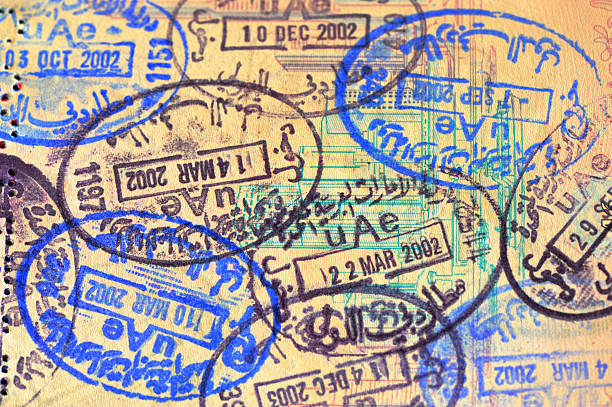As the United Arab Emirates (UAE) continues to flourish as a hub for international business, tourism, and academia, the variety of visas offered mirrors its diverse influx of visitors and residents. Understanding the types of visas available is paramount whether you’re planning to embark on a Dubai company formation, soak in the splendors of Abu Dhabi, or immerse yourself in an educational pursuit. In this guide, we will detail the different types of visas, explaining their purposes and the visitors they cater to, laying a foundation for a hassle-free experience in the UAE.
Understanding UAE Visas
Familiarizing yourself with the various visas the UAE has to offer is a stepping stone to a successful trip or relocation. The correct visa type not only ensures legal entry and stay but also defines the activities you’re entitled to partake in, whether that be working, studying, or simply exploring. Given the stringent regulations, a thorough comprehension is essential to avoid any complications that might disrupt your plans.
Tourist and Visitor Visas
If you are intending to experience the glitz and glamour of the Emirates for a short stint, several visa options cater to holidaymakers and short-term visitors. The ease and speed of obtaining these visas make the UAE a top tourist destination. Ranging from a quick stopover to a leisurely vacation, there’s a visa formatted for your time frame and purpose in the Emirates.
Work Visas and Permits
The UAE’s burgeoning economy offers ample business opportunities, which is why work visas are a focal category for the government. Securing a work visa often involves sponsorship from a UAE-based employer and is essential for anyone considering employment in the region. For entrepreneurs and investors involved in Dubai company formation, specific visas facilitate these economic contributions.
Student and Education Visas
Educational pursuits in the UAE are supported by specific visa types that cater to students and academic professionals. These visas accommodate people entering the country with the intent to study at one of the UAE’s prestigious institutions or partake in educational work. Let’s delve into these opportunities with a nuanced look at what potential learners and educators can expect.
Special Category Visas
Beyond the standard classifications, the UAE government also offers visas for those with distinct needs or circumstances. These special category visas include transit visas for layovers and visas for those seeking medical treatment within the country. Understanding these categories could be vital for your travel arrangements and comfort.
Residency Visas
Long-term stay in the UAE typically requires a residency visa. These visas are varied, with some linked to familial connections in the country, while others pertain to property ownership. For expatriates looking to lay down roots or unite with family, these visas offer the necessary legal standing. Here’s what to consider if you envisage the UAE as your new home.

The Application Process
Navigating the application process for a UAE visa involves a series of important steps, beginning with the collection of necessary documentation. Each visa type has its own set of required documents and application protocols, which could differ significantly. Consequently, let us break down the essentials to prevent any missteps along the way.
Documentation Required
Oftentimes, the application process begins with proper documentation. The following is a list of documents that you may need to provide during your UAE visa application:
- Passport with at least six months validity
- Passport-sized photographs
- Application form, duly filled
- Proof of UAE sponsor (employer, educational institution, family member, etc.)
- Financial proof for tourist visas
- Medical clearance certificate for specific visas
Online and Offline Application Procedures
The procedure for applying can vary; some might prefer the traditional route, while others opt for the convenience of online applications. Below is a general framework of steps to guide you through both approaches:
- Collect all necessary documentation
- Choose the appropriate visa type
- Submit the application and documents online or at the consulate/embassy
- Pay the applicable visa fee
- Track the application status
- Receive visa approval and subsequent entry permit or passport stamp
Validity, Overstaying, and Renewals
Understanding the intricacies of visa validity, the ramifications of overstaying, and the processes for renewals can save visitors from legal trouble and financial penalties. Here, we outline the critical timelines and regulations that govern your stay in the UAE.
Visa Validity Periods
The table below summarizes the different UAE visa types and the typical validity period for each:
| Visa Type | Validity Period |
|---|---|
| Tourist Visa (Short-term) | 30 days |
| Tourist Visa (Long-term) | 90 days |
| Work Visa | 2 years (renewable) |
| Student Visa | 1 year (renewable) |
| Residency Visa | 2 to 10 years (renewable) |
Overstaying Fines and Consequences
The UAE takes visa overstays very seriously, often incurring fines and bans for non-compliance. It’s crucial to understand the penalties associated, which may lead to deportation or future entry restrictions into the country.
Visa Renewal and Extension Possibilities
There are provisions for the renewal and extension of visas. Specific conditions and periods apply depending on your visa type, so staying informed about the available avenues for an extended stay is essential for long-term planners and residents alike.

Conclusion
Selecting the right visa for your travel or residency in the UAE is a process that should not be underestimated. From quick tourist visits to more enduring prospects like Dubai company formation and permanent residency, each visa type serves a specific purpose. By staying informed and following the proper application and renewal protocols, your stay in the UAE can be both legal and enjoyable. Remember, adhering to the visa requirements and respecting local laws are the cornerstones of a fruitful UAE experience.
FAQs
We’ve compiled a list of frequently asked questions to assist you further in understanding the nuances of UAE visas:
- Can I switch my tourist visa to a work visa while in the UAE?
No, it’s generally not possible to switch from a tourist visa to a work visa while within the UAE. You would need to exit the UAE and apply for an employment visa from abroad. - Do I need a sponsor to apply for a visa to the UAE?
Yes, most UAE visas require sponsorship from a UAE resident, employer, or educational institution. Certain investor visas might be exempt from this requirement. - How long does it typically take to process a UAE visa?
The processing time can vary, but typically, a UAE visa may take from a few days to a couple of weeks to get processed. - Can I extend my student visa if I need to continue my studies?
Yes, student visas in the UAE can usually be extended provided you continue to meet the requirements, such as being enrolled in an academic program. - What should I do if my visa application gets rejected?
If your visa application is rejected, you should first understand the reasons for the rejection, address the issues, and reapply. You may also consult visa specialists or the UAE embassy for guidance.
